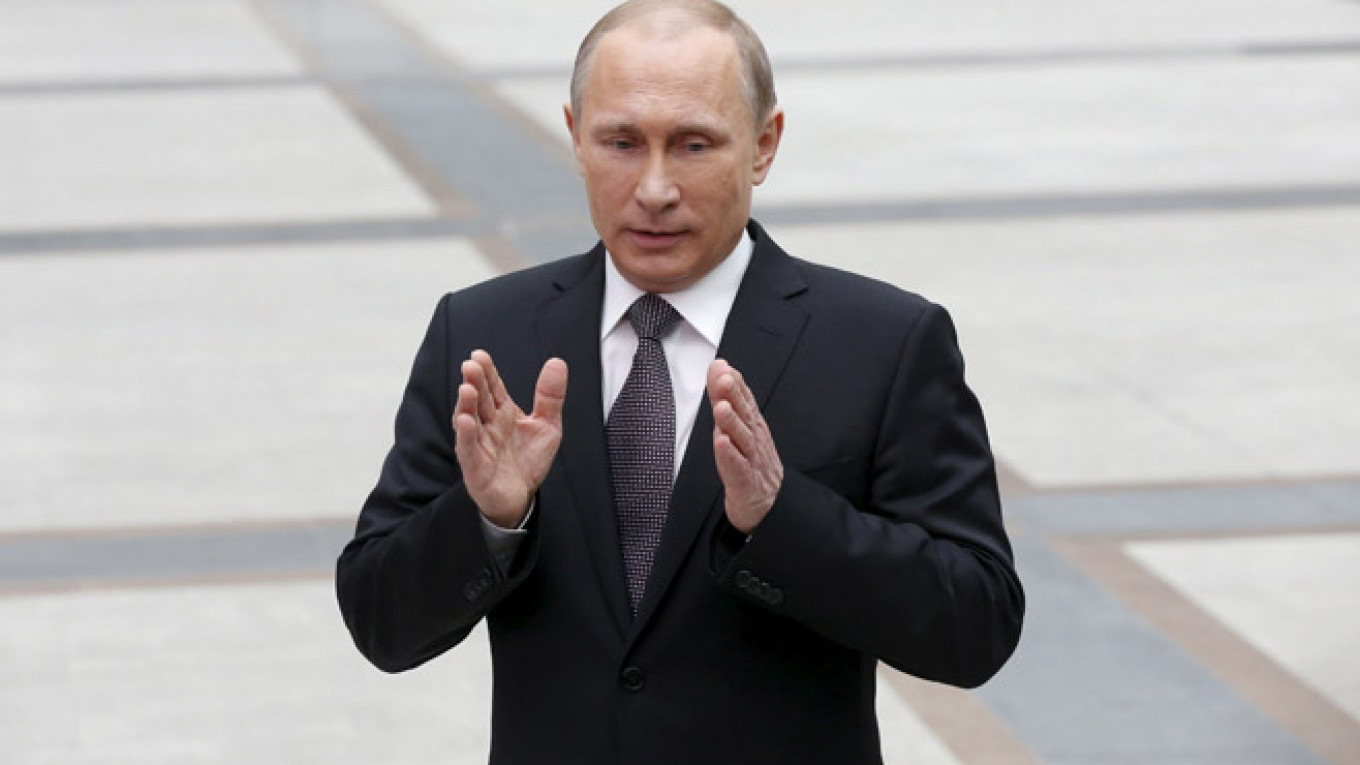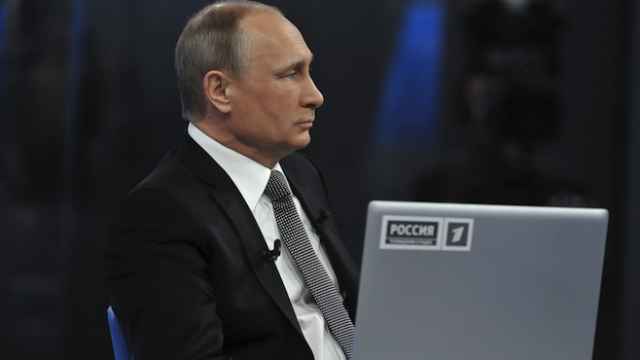President Vladimir Putin tried to reassure Russians over the ailing economy but offered no new financial remedies at an annual phone-in on Thursday.
Painting a rosy picture of economic prospects and praising government anti-crisis measures, he said growth could return within two years because the Russian ruble is recovering and share prices are rising after dramatic slides in 2014.
"I think that it may happen faster … but somewhere in the region of two years," Putin said.
His expectation is in line with some forecasts, including those of the Economy Ministry, while the Central Bank says it expects the economy to contract by 3.5 to 4 percent this year and by 1 to 1.6 percent in 2016.
The ruble fell about 40 percent against the dollar in 2014 but has risen in the last few weeks, as has the stock market.
Although he exuded confidence, Putin did not say how growth could be achieved quickly. Global oil prices are still low, despite recent rises, and energy exports are vital for Russia's economy. Putin also said he did not expect an early end to Western sanctions over Russia's role in the Ukraine crisis.
Instead, he made clear that though the government has cut spending, he will not risk increasing the pain on the population — a move that might dent his popularity.
"To carry out a competent economic policy you have to use your head, of course, but if we want the people to trust us, we also have to have a heart," he said.
But when a farmer in the studio audience challenged him over the economy, he struggled to find a convincing answer.
"You say all is going well — sorry, that's not true," the farmer said, demanding assurances over the future of his five children.
As often in the past, Putin shifted at least some of the blame for Russia's economic woes on to the West, although his criticism was not as fierce as in some years.
Sitting at a desk in front of rows of telephone operators taking viewers' calls, he said the Western sanctions over Ukraine were part of a policy of "containment" of Russia.
"I think they do not relate directly to events in Ukraine," he said, describing them as "purely political."
A Message from The Moscow Times:
Dear readers,
We are facing unprecedented challenges. Russia's Prosecutor General's Office has designated The Moscow Times as an "undesirable" organization, criminalizing our work and putting our staff at risk of prosecution. This follows our earlier unjust labeling as a "foreign agent."
These actions are direct attempts to silence independent journalism in Russia. The authorities claim our work "discredits the decisions of the Russian leadership." We see things differently: we strive to provide accurate, unbiased reporting on Russia.
We, the journalists of The Moscow Times, refuse to be silenced. But to continue our work, we need your help.
Your support, no matter how small, makes a world of difference. If you can, please support us monthly starting from just $2. It's quick to set up, and every contribution makes a significant impact.
By supporting The Moscow Times, you're defending open, independent journalism in the face of repression. Thank you for standing with us.
Remind me later.






